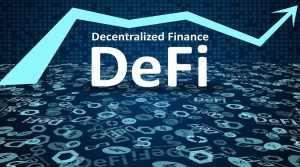The traditional financial system has long been plagued by issues of centralized control and a lack of accessibility, particularly for marginalized communities. The advent of Decentralized Finance (DeFi) has opened up new opportunities for democratizing access to financial services, offering a more inclusive and equitable system for all. In this article, we will explore the ways in which DeFi can help to address these issues and create a more accessible financial system for all.
Introduction to DeFi
Decentralized Finance, or DeFi, is an emerging sector of the blockchain ecosystem that allows users to access a range of financial services without relying on traditional centralized institutions such as banks. DeFi is built on decentralized blockchain networks, which are transparent, secure, and accessible to all users.
The Need for Democratization of Financial Services
Access to financial services has traditionally been restricted to certain groups of people, particularly those with high incomes or good credit scores. This has led to significant financial exclusion, particularly for marginalized communities. The democratization of financial services is crucial for ensuring that everyone has equal access to financial opportunities and can participate in the economy on an equal footing.
DeFi and Financial Inclusion
DeFi can help to address issues of financial exclusion by providing a more open and accessible system for financial services. The use of blockchain technology means that DeFi platforms are transparent and secure, with no single point of control. This makes it easier for people with limited access to traditional financial institutions to access financial services.
Advantages of DeFi
DeFi offers several advantages over traditional financial services, including lower fees, faster transactions, and greater transparency. These advantages make DeFi a more attractive option for people who are excluded from traditional financial services.
Use Cases for DeFi
There are several use cases for DeFi, including:
Decentralized Exchanges (DEXs)
Decentralized exchanges allow users to trade cryptocurrencies without relying on a centralized exchange. This makes it easier for people to access and trade cryptocurrencies without relying on traditional financial institutions.
Lending and Borrowing
DeFi platforms allow users to lend and borrow cryptocurrencies without relying on traditional banks. This makes it easier for people to access credit, particularly those who may not have access to traditional banking services.
Stablecoins
Stablecoins are cryptocurrencies that are designed to maintain a stable value, typically pegged to a fiat currency such as the US dollar. Stablecoins offer a more stable and predictable investment option, making it easier for people to access investment opportunities.
Challenges of DeFi
While DeFi offers several advantages, there are also challenges that need to be addressed. These challenges include scalability, regulation, and security. DeFi platforms need to be scalable enough to accommodate large numbers of users, while also complying with regulations to ensure user safety and security.
Decentralized Identity
DeFi platforms can utilize decentralized identity solutions to create a more secure and private system for users. Decentralized identity allows users to control their own identity and data, reducing the risk of identity theft and fraud.
Decentralized Insurance
DeFi platforms can offer decentralized insurance solutions that are more transparent and accessible to users. Decentralized insurance allows users to pool their risk together and obtain coverage without relying on traditional insurance providers.
Decentralized Governance
DeFi platforms can incorporate decentralized governance structures that allow users to have a say in the decision-making process. Decentralized governance can create a more democratic and transparent system for managing DeFi platforms.
Interoperability
Interoperability between different DeFi platforms can create a more seamless and accessible system for users. Interoperability allows users to easily move assets between different DeFi platforms, increasing liquidity and creating more opportunities for financial inclusion.
Environmental Sustainability
DeFi platforms can incorporate environmental sustainability into their operations, utilizing renewable energy sources and reducing their carbon footprint. This can create a more sustainable and ethical system for financial services.
Education and Awareness
Education and awareness campaigns can help to increase accessibility and adoption of DeFi platforms. By providing information and resources to users, we can create a more informed and empowered user base that can fully utilize the benefits of DeFi.
Security and Risk Management
DeFi platforms must address security and risk management to maintain user trust and ensure the safety of their assets. This can be done through measures such as multi-factor authentication, smart contract auditing, and insurance coverage for user funds.
Decentralized Asset Management
DeFi platforms can offer decentralized asset management solutions, providing users with more control over their investments and greater transparency. Decentralized asset management can create a more democratic and accessible system for investing.
Decentralized Prediction Markets
DeFi platforms can offer decentralized prediction markets, allowing users to make predictions about future events and earn rewards for accurate predictions. Decentralized prediction markets can provide a more accessible and transparent system for betting and forecasting.
Cross-Border Payments
DeFi platforms can offer cross-border payment solutions that are faster, cheaper, and more accessible than traditional methods. Cross-border DeFi payments can provide a more equitable and efficient system for sending and receiving money across borders.
Use Cases for Developing Countries
DeFi can be particularly impactful in developing countries, where traditional financial services may be limited or inaccessible. DeFi solutions can provide people with access to financial services such as loans, savings accounts, and insurance, creating opportunities for economic growth and financial inclusion.
Future Potential
DeFi is a rapidly evolving field with significant potential for future innovation and development. As the technology continues to mature, we can expect to see even more opportunities for democratizing access to financial services and creating a more equitable financial system for all.
Conclusion
DeFi has the potential to revolutionize the financial services industry, offering a more inclusive and equitable system for all. By leveraging blockchain technology, DeFi platforms can democratize access to financial services, providing a more open and accessible system that benefits everyone. While there are challenges that need to be addressed, the potential benefits of DeFi are significant, and it is an exciting development for the future of finance.






